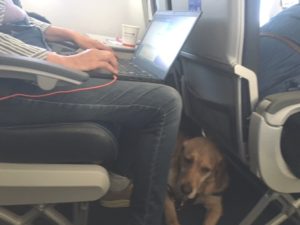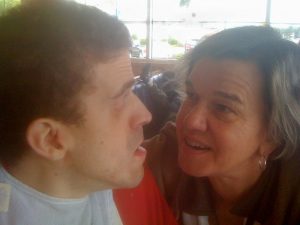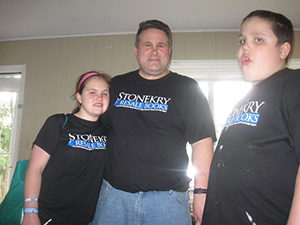by Beth Finke
I am pleased to introduce Samantha Craft, author of Everyday Asperger’s, as a guest blogger today. This excerpt from her book speaks to her pride for her son, and having pride as a person with autism raising a child with autism.
You can also catch Samantha as a panelist on our #DisabilityInFocus Twitter chat TONIGHT, Thursday, July 20, at 6:00 p.m. CST. Join us in discussing how disability intersects all aspects of identity and culture.
148. A Beautiful Morning with a Beautiful Mind
by Samantha Craft
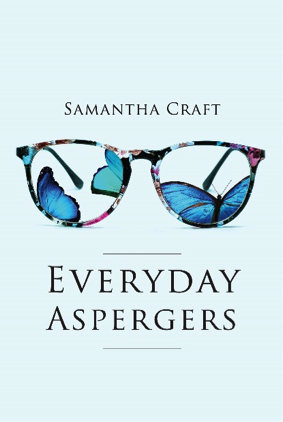
The title of Samantha Craft’s book, Everyday Aspergers
My Aspie son and I have such deep and complex conversations that I swear he must be at least a thousand years old. He speaks philosophically, in a manner of viewing life that I have only discovered in the ancient wisdom of great scholars.
This morning, we spoke about truth, and the idea that when one threatens another’s truth by confrontation through disagreement or differing opinion, how the other naturally instinctually responds with a fight-or-flight nature. We opted for the agreement that this human response is based on human nature, on the idea of wanting to protect singular intelligence and mentality. I scaffolded upon the initial points, mentioning the concepts of limited and isolated perception based on the singular collection of reality from a limited scope of an individualized sensory input. He understood entirely.
I elaborated that I don’t hold a singular truth, as my truths vary vastly compared to how I interpreted my world five years prior, and that I am continually changing. He concurred and expressed that I had made sense.
Of course, most of this discussion was a dissertation on my son’s part. His theories of human communication and outcomes are right up there with the geniuses of our time. It amazes me that he is Aspie and yet years ahead of his peers in understanding the complexities of human nature and societal responses to multiple environmental stimuli.
I suppose I have taught him some by example, and he has sought out his own form of awareness and truth through observation of others and the intake of literature and films; however, the intricate ways in which he pieces the found knowledge into linear, detailed outcomes and conclusions is awe-inspiring. If ever an old soul exists, I see this as my son.
When I offer a gentle reminder to him (at any time and in any genre of conversation) to please remember to keep in mind that he views the world a bit differently than others and that he and I have complex ways of interpreting events, he responds ever so humbly, consistently reminding me that he does not enjoy the comfort of setting himself above or beyond anyone else, and that all can see and comprehend as he does, but perhaps they do not understand what they are doing or in some way do not observe the connections.
He is insistent that his way is no better and that he is not superior by any means; to sit with the idea of being special is a great discomfort to him. And though my son may appear aloof, argumentative, and at the edge of his seat ready to engage in debate, he is a wise sage at heart, insistent upon remaining humble. A concept I did not set out to instruct upon him, but one he shares with me.
I am continually fascinated by his mind. He grows in spurts that are “unnaturally” fast, comprehending and taking in and retaining more than any student I have ever witnessed. He reworks ideas in his mind to match his view of reality, a view that is extremely open-minded whilst being seemingly narrow-minded.
I mean to say that, to the typical observer, he comes across as strongly opinionated and limited in his viewpoints, but given the time for careful analysis, he is actually extremely open to reasonable and logical ideas that don’t initially resonate as truth with him. And, in fact, he will easily dislodge a chosen truth for a new truth after taking in what another has shared.
The barrier that exists between him and his peers (and some adults) appears to be that exact fight-or-flight mentality my son was theorizing upon. He speaks, and if another interprets him as threatening to any degree, then the other shuts my son down or out, no longer hearing what he is stating and instead closing off possible connection.
We were weaving out of conversation this morning, and I found myself going down an interesting course. I had started a sentence several times, never truly completing the string of words, as my son was interjecting (albeit while apologizing for doing so) with his rapid-fire thoughts and connections. I enjoy the way he is ignited with ideas and take no offense to his interruptions. I see a lot of myself in him, and him in me.
I was trying to explain something to my son. At first, I thought I was clear on my idea, but something inside of me self-corrected in the middle of my thought process. I was speaking aloud. I had thought of the isolating factor of Aspergers, how we are so often misunderstood and ostracized. And, on hearing my son talk so freely and blatantly, I imagined how this exact discourse might bring him further out of his collective circle of peers. I began to speak from fear, but didn’t recognize what I was doing until most of the words were out of my mouth. “As you get older, son, I think it would be beneficial if you monitored some of what . . .”
The words came through at last as one cohesive thread, and with that outpour, I had time to recollect what I had shared. I immediately backtracked. “You know what? I have changed my mind,” I shared. “I was originally thinking that you should be more careful around people who don’t accept you unconditionally, so that you don’t live an isolated life. But I disagree with this. I think you should be exactly you, and that people will love you for you.”
We sidetracked for a bit to explore the concept of unconditional love. He didn’t understand the idea of choosing not to have someone in your life but choosing to still love them unconditionally, e.g., to hold them in love and light, to pray or keep them in thought, to hold no ill will or resentment toward the individual and wish the person the very best.
He seemed to be taking in a lot more than I was saying.
My son looked at me and gave me a sheepishly wise grin. I knew that he knew. And we continued onward, back to the previous conversation. I stated, “I mean, I tried the other way for years. To pretend and hold back myself, and I was miserable. Why would I want that for you? I just want you to be free to be you, and others to appreciate you for who you are.”
He answered. “I know. I thought you might change your mind, once you said it. You realized you were contradicting yourself before you were finished. That is clear. I understand.”
I smiled, still in disbelief at the level of this young man’s ability to comprehend others’ thought processes. I added, “I guess I just wish as you grow older that you can focus on being less injurious, if that makes sense. What I mean is there is a difference between choosing to say something that you are highly certain will hurt someone’s feelings, and saying something that unintentionally hurts someone. If you are injurious, it will be harder to maintain friends. Does that make sense?”
“Yes,” he said. “And I already do that, Mom. Don’t worry. I understand.”
We talked further about the complexities of human communication and the limitations based on others’ interpretations and emotional responses. As we approached the school, he looked at me and responded, “Thank you for such intriguing conversation.” He nodded, sounding much like the little professor I have grown to adore in astonishing amounts. “It was quite a good conversation.” I half expected him to add “indeed” to the end of his last statement. His voice was monotone, without hints of rejoice; he made no eye contact, and he mostly huffed away as I said, “Enjoy your day, sweetie pie.” But I knew how he felt.
We’d connected at an intellectual level without judgment, without expectation, and with equally open minds and acceptance. It was another freeing moment, the way in which the two of us communicate, this unabashed arena in which anything said is okay and doesn’t affect the other’s equilibrium or sense of self or worth.
It was a beautiful morning, indeed.
Learn more about tonight’s #DisabilityInFocus Twitter chat where Samantha will be a panelist
 This weekend hundreds of thousands of music fans will descend upon Grant Park in Chicago for the much anticipated four-day Lollapalooza music festival. Featuring top billed acts and emerging artists, a variety of local food vendors, and a beautiful view of the city skyline, the festival is sure to have something for everyone. For festival goers with disabilities accessibility is key.
This weekend hundreds of thousands of music fans will descend upon Grant Park in Chicago for the much anticipated four-day Lollapalooza music festival. Featuring top billed acts and emerging artists, a variety of local food vendors, and a beautiful view of the city skyline, the festival is sure to have something for everyone. For festival goers with disabilities accessibility is key.






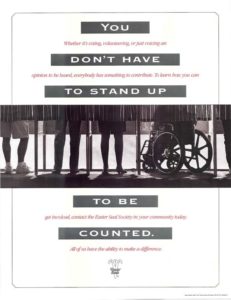
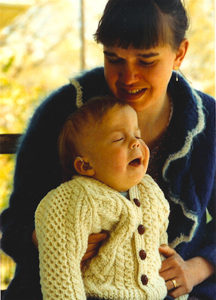
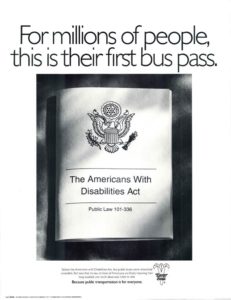

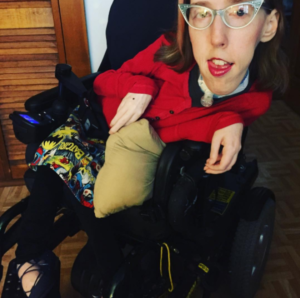

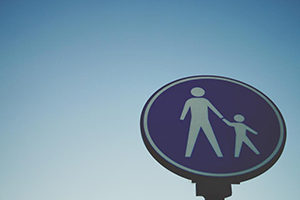 I am an Instructional Coach and Reading Specialist at a large urban high school.
I am an Instructional Coach and Reading Specialist at a large urban high school.